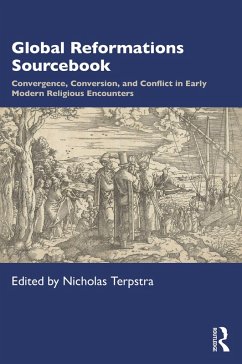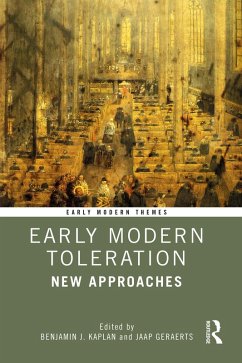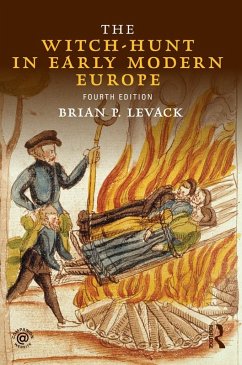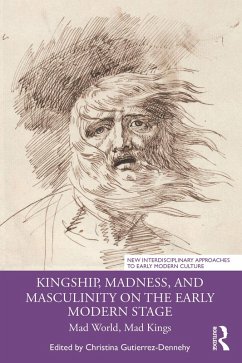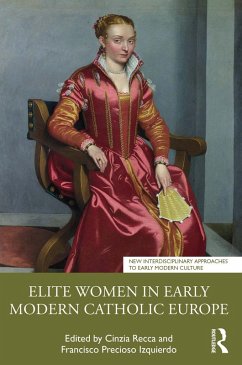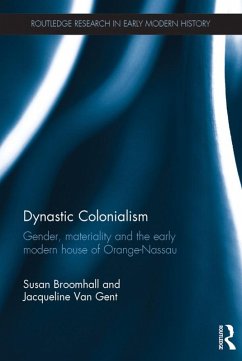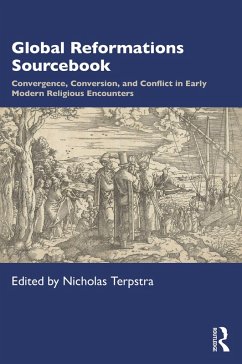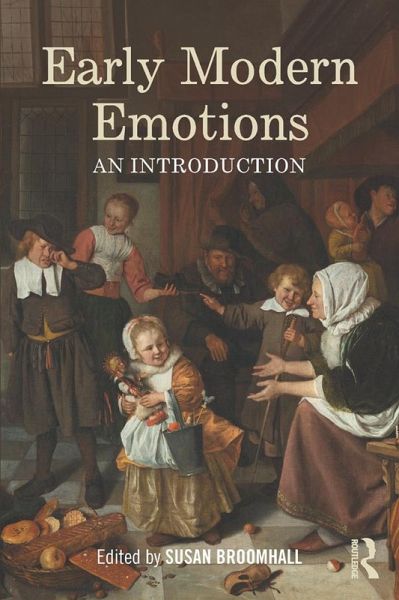
Early Modern Emotions (eBook, ePUB)
An Introduction
Redaktion: Broomhall, Susan
Versandkostenfrei!
Sofort per Download lieferbar
47,95 €
inkl. MwSt.
Weitere Ausgaben:

PAYBACK Punkte
24 °P sammeln!
Early Modern Emotions is a student-friendly introduction to the concepts, approaches and sources used to study emotions in early modern Europe, and to the perspectives that analysis of the history of emotions can offer early modern studies more broadly.The volume is divided into four sections that guide students through the key processes and practices employed in current research on the history of emotions. The first explains how key terms and concepts in the study of emotions relate to early modern Europe, while the second focuses on the unique ways in which emotions were conceptualized at th...
Early Modern Emotions is a student-friendly introduction to the concepts, approaches and sources used to study emotions in early modern Europe, and to the perspectives that analysis of the history of emotions can offer early modern studies more broadly.
The volume is divided into four sections that guide students through the key processes and practices employed in current research on the history of emotions. The first explains how key terms and concepts in the study of emotions relate to early modern Europe, while the second focuses on the unique ways in which emotions were conceptualized at the time. The third section introduces a range of sources and methodologies that are used to analyse early modern emotions. The final section includes a wide-ranging selection of thematic topics covering war, religion, family, politics, art, music, literature and the non-human world to show how analysis of emotions may offer new perspectives on the early modern period more broadly.
Each section offers bite-sized, accessible commentaries providing students new to the history of emotions with the tools to begin their own investigations. Each entry is supported by annotated further reading recommendations pointing students to the latest research in that area and at the end of the book is a general bibliography, which provides a comprehensive list of current scholarship.
This book is the perfect starting point for any student wishing to study emotions in early modern Europe.
The volume is divided into four sections that guide students through the key processes and practices employed in current research on the history of emotions. The first explains how key terms and concepts in the study of emotions relate to early modern Europe, while the second focuses on the unique ways in which emotions were conceptualized at the time. The third section introduces a range of sources and methodologies that are used to analyse early modern emotions. The final section includes a wide-ranging selection of thematic topics covering war, religion, family, politics, art, music, literature and the non-human world to show how analysis of emotions may offer new perspectives on the early modern period more broadly.
Each section offers bite-sized, accessible commentaries providing students new to the history of emotions with the tools to begin their own investigations. Each entry is supported by annotated further reading recommendations pointing students to the latest research in that area and at the end of the book is a general bibliography, which provides a comprehensive list of current scholarship.
This book is the perfect starting point for any student wishing to study emotions in early modern Europe.
Dieser Download kann aus rechtlichen Gründen nur mit Rechnungsadresse in A, B, BG, CY, CZ, D, DK, EW, E, FIN, F, GR, HR, H, IRL, I, LT, L, LR, M, NL, PL, P, R, S, SLO, SK ausgeliefert werden.




